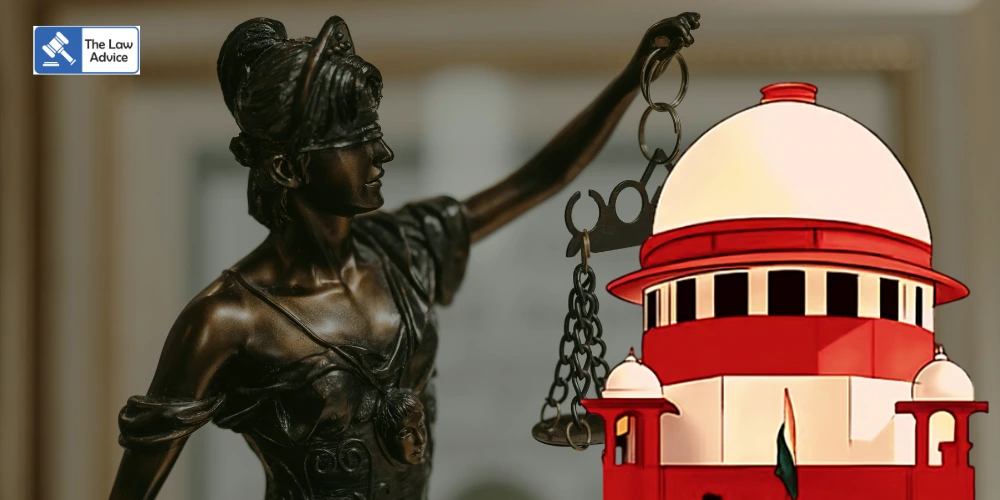
The Supreme Court on Tuesday ordered the transfer of the trial in a cheating case against Congress MLA from Madhya Pradesh, Rajendra Bharti, to Delhi, taking serious note of his allegations that defence witnesses were being intimidated and pressured.
A Bench comprising Justices Vikram Nath and Sandeep Mehta passed the order after hearing arguments from Senior Advocate Kapil Sibal, appearing for Bharti, Additional Solicitor General SV Raju representing the State, and Senior Advocate Saurabh Mishra for the complainant. The plea sought transfer of the ongoing criminal trial outside Madhya Pradesh to ensure a free and fair proceeding.
The Court’s decision comes months after a Bench of Justices Abhay S. Oka and Ujjal Bhuyan, in February 2025, had stayed the trial expressing displeasure with the State’s “evasive” responses to queries about whether any credible inquiry had been conducted into the allegations that witnesses were coerced to depose against the accused. During that earlier hearing, the bench was informed that the defence witnesses were allegedly taken to a hotel and pressured to give statements adverse to Bharti. The State, however, categorically denied any such incident.
On Tuesday, the Court was apprised that out of 11 witnesses, 3 had passed away, 6 were given up by the petitioner, and only 2 witnesses remained to be examined. It was also noted that the trial had already reached the Section 313 CrPC stage, where the accused’s statement is recorded.
During arguments, Kapil Sibal drew the Court’s attention to the FIR registered against Bharti, which accused him of extending a fixed deposit beyond the permissible three-year limit. He submitted that the case was politically motivated and had been revived only after Bharti’s electoral victory, adding,
“The whole problem has arisen because he won the election. They want that he get convicted for three years so that he loses his membership. That’s all — that’s the whole game.”
Sibal further alleged that the official liquidator was not participating in the proceedings, and that the complainant had been actively influencing the case. He relied on statements recorded by the investigating authority, in which a witness reportedly said that local leaders had threatened him not to testify in favour of Bharti.
On the other hand, Senior Advocate Saurabh Mishra, appearing for the complainant, strongly opposed the transfer plea. He contended that the petition was filed at a belated stage, when only two witnesses were left to be examined, and that protection could be provided to the witnesses if there were genuine apprehensions. He added that the CID had already investigated the allegations of intimidation but found no evidence to support the claim. Mishra emphasized that the trial could continue on a day-to-day basis under the court’s supervision, ensuring fairness.
ASG SV Raju, appearing for the State, supported Mishra’s stance, reiterating that the allegations of coercion were baseless and politically coloured.
However, the Bench appeared unconvinced by the respondents’ resistance to the transfer. Justice Mehta observed that “on the face of it, the witnesses have claimed they were threatened,” while Justice Nath pointedly remarked that “justice must not only be done but must also be seen to be done.”
When Mishra argued that the officials against whom allegations were made — including the District Public Officer (DPO) and Additional District Public Officer (ADPO) — had since been transferred, Justice Mehta noted:
“It’s not only that they are gone. The manner in which things were taken forward at the initial stage by involving people directly linked with you… that’s the whole issue. It’s not a single incident. Why is the bank so hell-bent on opposing the transfer? What is adverse to the bank if the matter is decided by one court or the other?”
The Court also took cognizance of the petitioner’s submission that while a March report by the investigating officer had recorded the witness’s statement acknowledging threats, the subsequent report in May conspicuously ignored those findings, raising doubts about the integrity of the investigation.
Given the sensitive nature of the allegations and the need to ensure a fair and impartial trial, the Supreme Court ordered that the entire proceedings be transferred from Madhya Pradesh to a competent court in Delhi. The Court’s decision effectively reaffirms the judiciary’s commitment to protecting witness integrity and ensuring that political or local influences do not compromise the administration of justice.
Case Title: Rajendra Bharti v. State of Madhya Pradesh, T.P. (Crl.) No. 1120/2024
Website designed, developed and maintained by webexy